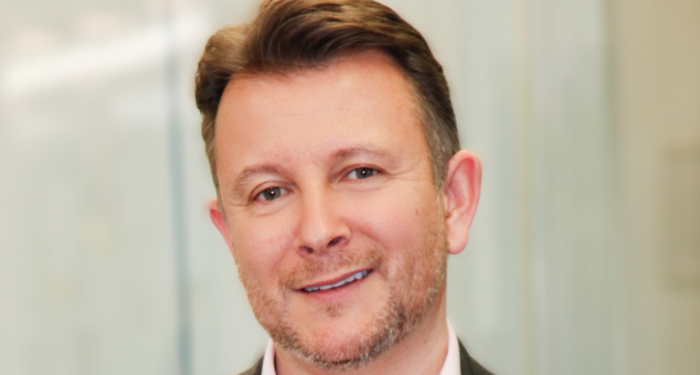Aviva UK Health managing director Steve Bridger has admitted call waiting times at the insurer remain less than perfect, but noted it had improved and pledged advisers and customers would see near “perfection” in the second quarter of the year.
“Call waiting through last year wasn’t at its best, particularly through the summer,” Bridger (pictured) told Health & Protection in an exclusive interview during the Health Summit last week.
“We start this year much more strongly. Its not perfect, but perfection will start to come through – whatever that actually means – certainly by the end of quarter one and quarter two.”
However several advisers at the Health Summit said they were still far from satisfied with Aviva’s situation, arguing the insurer had missed its goal to return service levels to normal by the New Year set by CEO Amanda Blanc in August.
An adviser noted that although calls may be answered more quickly than before, customers could still be put on hold for as long as an hour and longer after that initial answer.
They argued the benefit to Aviva was that it appeared call waiting times had dropped, but in fact, the overall waiting time was still excessive.
And compounding the issue was the cost to advisers who take over the call process from customers – with one adviser saying costs were running into hundreds of thousands of pounds.
Digital claims increasing
Bridger had earlier been part of a panel, where leaders from major insurers conceded service levels had not been good enough over the last year and admitted the industry was caught out by the scale of the surge in demand.
But while other insurers have had similar problems, some of them appeared to have seen the issue rise much earlier than Aviva, and were able to source solutions earlier.
“We may have seen that later than some of our competitors,” Bridger told .Health & Protection.
“We’ve invested in more recruitment, digital and automation; our digital claims are now up from 20% to 43% in a year.“
Aviva is also seeing 92% first point resolution and less than 2% of claims requiring a claim form, Bridger added.
“So we’re really prioritising not just that speed of answer, but what happens when you get through and you get great service,“ he said.
Recruitment and training
Bridger said Aviva has hired many more people for its call centres, with numbers up by 34% over last year, which translates to about 200 more people than at January last year.
But finding people has not been easy.
“Its been quite hard to recruit as you can imagine,” Bridger said.
“There aren’t PMI claims assessors that are at home ready to return to work, so it can take six to eight months to train staff.
“But what we’ve found is with triage you can train someone quite quickly, especially on corporate, to be helping people and then get speed of access quicker.
“We did see that speed of access tumble through Q4,” he said.
Improving on pre-Covid service
But Bridger noted its not just about getting back to pre-Covid levels of service, as the goal is to get even better.
“You don’t want to just get back to pre-Covid and where you were,” Bridger continued.
“That is a yardstick, but with the advent of digital and the fact that we’ve invested in people – this is still a proposition where people help people when they’re sick, injured, vulnerable and emotional.
“So if you’ve got a cancer, you may not want a digital journey. You may want to speak to someone.
“Vulnerable customers, speed of access, getting to people at the right time and the right people, a mix of live chats, chat bots, real people and digital is the right answer.“
But dialling that mix up so that people can get through when they need to is important.
“So I think we’ll get better than than we were before,” he said.
Ongoing issue
The issue of long waiting times for Aviva call centres has been ongoing since last year. In July, Health & Protection reported that Aviva had apologised to private medical insurance (PMI) customers as it continued to tackle the issue of long waiting times for its call centres.
And then in August, Amanda Blanc, CEO Aviva, reiterated the apology to health insurance customers for waiting times when calling the firm in answer to a question from Health & Protection during a results call.
“We expect levels to return to normal by the end of this year,” she said at the time.
But several advisers who spoke to Health & Protection at the Health Summit singled out Aviva over other providers for its long call waiting times.
Some said waiting times could still be as long as 45 minutes, with at least one broker saying they could reach 90 minutes.
Some brokers have taken the burden from their customers, by making the calls on behalf of their clients. But this too is problematic, as one broker stated that the cost to the business can run in the hundreds of thousands of pounds.
One broker noted that tough calls may be answered more quickly than previously – within the first couple of minutes – but the call can then be put on hold for longer than an hour.
The result is that the statistics look better, thanks to the call being answered quickly initially, but the end result for the customer is the same long wait.
And another broker noted that even after waiting for 90 minutes, the call could then disconnect, adding to frustration levels.






